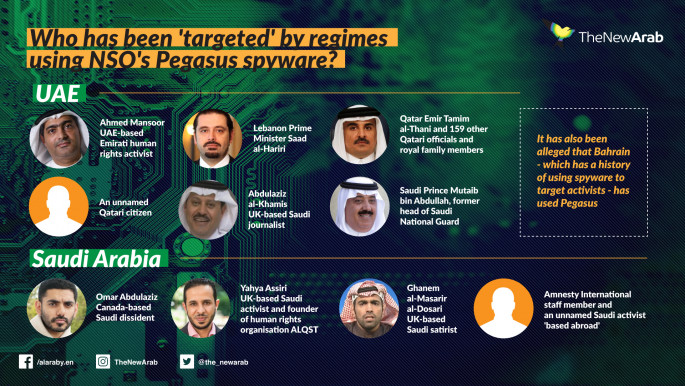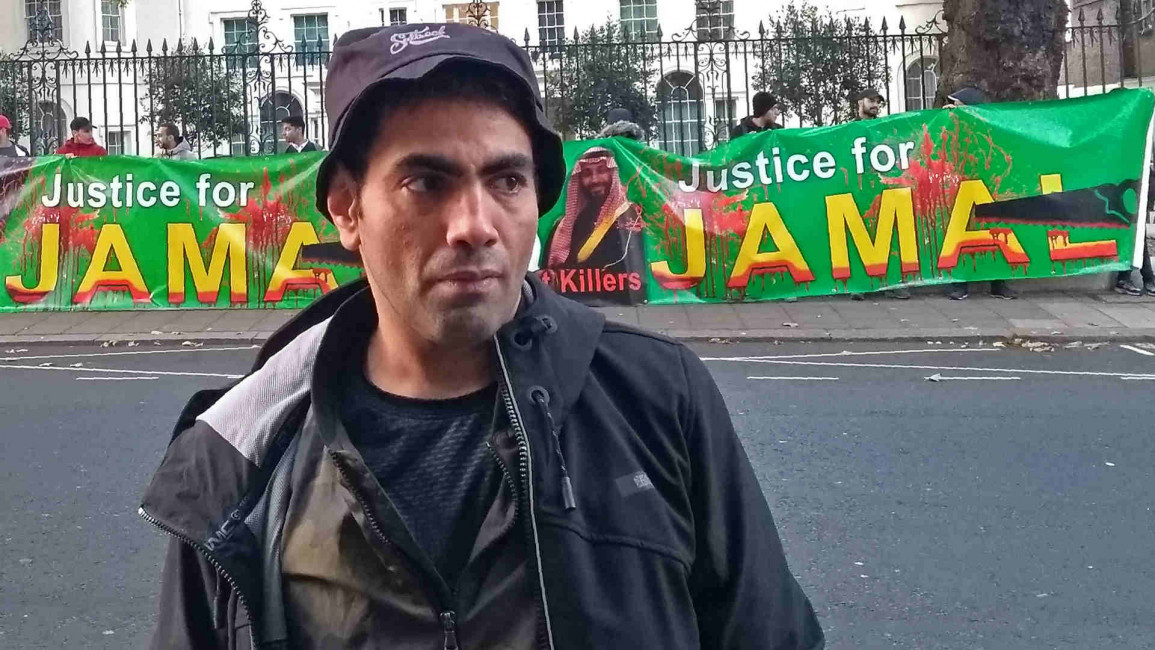Saudi Arabia hacks London-based dissident Ghanem al-Dosari with Israeli spyware
London-based satirist Ghanem al-Masarir al-Dosari, who was awarded asylum in the UK last year, on Tuesday accused the Saudi government of trying to hack his phone using spyware produced by the Israeli NSO Group, The Guardian reported.
Dosari is the latest in a string of Arab dissidents to accuse Saudi Arabia and the UAE of using NSO's Pegasus spyware to hack their phones.
Canada-based Saudi dissident Omar Abdulaziz launched a legal case against the NSO Group last year for selling its Pegasus phone-hacking software to Saudi Arabia.
Abdulaziz alleges Saudi Arabia attempted to hack his phone using the software, exposing his communications with Saudi journalist Jamal Khashoggi, with whom he was working on several pro-democracy projects, to prying eyes and ears.
The snooping software was also linked to a global hack of the WhatsApp messaging app earlier this month.
In a letter of claim sent to the Saudi Embassy in London on Tuesday, Dosari accuses the Saudi government of using Pegasus in an attempt to hack his phone.
Saudi Arabia has just six weeks to reply to the letter and settle the claims out of court before Dosari launches a legal case against the government.
Twitter Post
|
That action would mark the first such case of targeted dissidents suing the governments they say are behind hacking attempts.
While legal cases have been launched against the NSO Group itself by Abdulaziz, a Qatari citizen and a number of Mexican journalists - suing the company on the basis of endangering them by selling the spyware to authoritarian governments - no person who alleges they have been targeted by government-linked Pegasus hacking attempts has sued those governments.
Amnesty International, however, filed a legal case this month against the Israeli Ministry of Defense, demanding that the ministry revoke NSO's export license which it says has put the lives of global dissidents and activists at risk through allowing the company to sell to authoritarian regimes.
Dosari says he received a string of "suspicious" text messages in June last year.
 |
Read more: The Israeli company 'behind' WhatsApp, Khashoggi, Qatari emir hacks
Independent experts traced those messages to a Pegasus operator who was "focused on Saudi Arabia" and had been linked to a seperate attack on a Saudi critic, the letter of claim alleges.
Indicators on Dosari's two phones, coupled with the fact he had clicked on links in the "suspicious" text messages and that Saudi Arabia has been linked to previous Pegasus attacks, led to the "inevitable conclusion" that the satirist had been hacked by the Saudi government, the letter says.
The accusations rely in part on research conducted by Citizen Lab, a Canada-based research group which has published a number of investigative reports detailing the alleged use by world governments of the Pegasus software to hack phones.
Dosari has lived in London since 2003, where he produces "The Ghanem Show", a popular satirical YouTube channel designed to raise awareness of Saudi human rights abuses and critique the Saudi royal family.
He was last year assaulted on the streets of London by a pair of pro-Saudi government men who he alleges to be "Saudi government operatives".
Since the UK police launched an investigation into the incident in October following the murder of Khashoggi, Dosari says he has been living under police protection.
The Metropolitan police in London told The Guardian they could neither confirm nor deny whether Dosari was under police protection because the force cannot publicly discuss security matters.
If the Saudi government decides to settle his claim outside of court, Dosari's law firm Leigh Day is seeking unspecified damages, a public apology, the return of "stolen" information, and full disclosure of any individuals who may have acted on the government's behalf.



